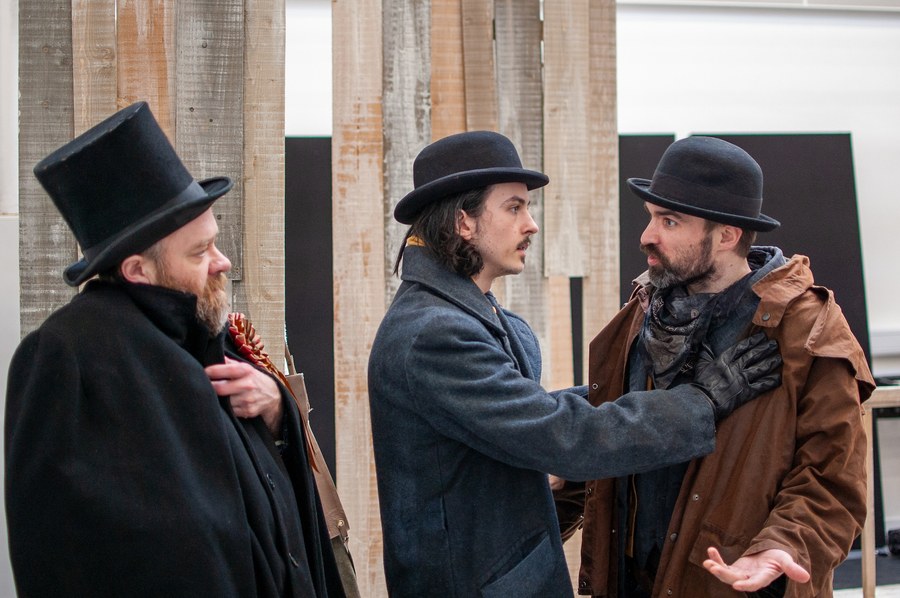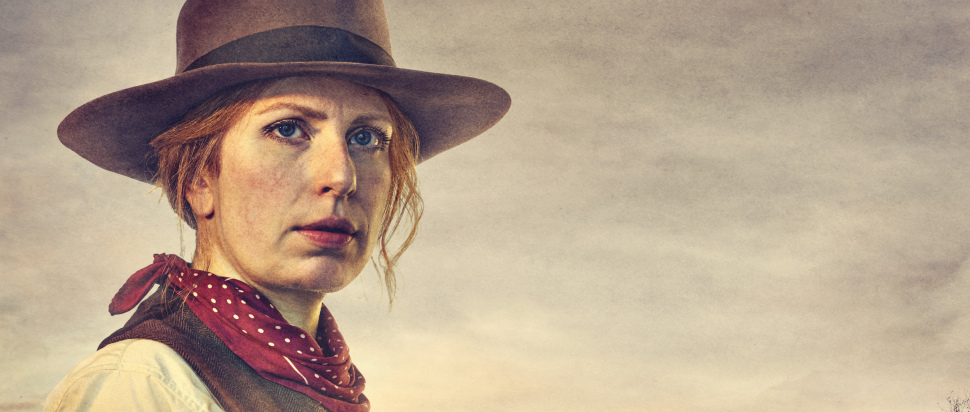Meet the team behind 'Gaelic western' Stornoway, Quebec
As Stornoway, Quebec's tale of Gaelic bounty hunters prepares to tour Scotland, we meet playwright Calum L. MacLeòid and director Muireann Kelly
In Quebec in 1888, a snowstorm traps five people in a remote saloon. One of them, Donald Morrison, is a man on the run. To some, he is a wanted outlaw. To this close-knit community of Gaelic migrants from Lewis, he is one of their own. Hot on his heels is bad-ass Barra woman Màiri MacNeill, a whisky-fuelled, pistol-slinging bounty hunter. She has a history and a score to settle. Stornoway, Quebec is a new Gaelic Western from Calum L. MacLeòid, the recipient of the New Gaelic Playwrights’ Bursary from Playwrights Studio Scotland, directed by Theatre Gu Leòr’s Artistic Director Muireann Kelly.
The initial inspiration for the play came from MacLeòid’s time spent living in Montréal. He became interested in the stories of Canada’s Gaelic immigrant communities, especially beyond the relatively well-known colonial settlements of Nova Scotia and Cape Breton. This research eventually produced Fon Choill, his novel about the Mégantic outlaw Donald Morrison. After returning to Scotland in 2019, MacLeòid received the Gaelic Playwrights Bursary and intended to adapt the novel for the stage, but quickly realised that this was not the play he wanted to write. Instead of a stage documentary, Stornoway, Quebec became a “wild foray over a snowbound weekend in Canada.” Donald Morrison does make an appearance, but the context and other characters are fictional. ”If you’re after historical accuracy,” he laughs, “look to the novel.”
As befits the setting, the play is performed in Scottish Gaelic, English, and Québécois French, with integrated BSL interpretation by Catherine King for some performances. The bi- and trilingual cast have been heavily supported throughout the rehearsal process by accent and voice coaches, particularly for the Lewis and Barra accents in Gaelic and Màiri’s Texan drawl. There’s also live music, which MacLeòid says “came in very organically” as the script developed. “It’s hard to write about Gaels without them starting singing at some point.”

Daibhidh Walker (L), Sam Jams Smith and Dòl Eoin MacKinnon (R) in rehearsals for Stornoway, Quebec
“The language isn’t something to be afraid of,” says director Kelly. “So much of what we communicate isn’t just through language.” Every language switch serves a function in the construction of narrative or character, and every audience member, no matter their language background, will have the whole story by the end. MacLeòid has “really brought in all the power that can be gained for a character through use of language,” continues Kelly, “and [the audience] collude with that from the outset. It’s a delicious unfolding.”
“It’s a joy to write,” says MacLeòid. “I very rarely write in one voice, one dialect, one language, because that’s not what my lived experience is. Monolingualism and monoglottism within literature is an artifice – it’s not how I experience the universe.”
The complexities of the language dynamics echo and underpin the complexity of the characters’ relationship to place. Forced from their Hebridean homes, the Gaels of Canada nevertheless took on a colonising role in their new land. “They learned from the best,” remarks Kelly drily. Some of the play’s characters were born in Canada, some in Scotland; all are shaped by a profound experience of cianalas (loosely “homesickness” or “home-longing”). On top of it all, the staking out of a new place to call home is coloured by the incredible harshness of that home as the community huddles together through the bitter Canadian winter. The land as a character is, after all, a defining element of the Western – and it must be stressed that Stornoway, Quebec is a Western through and through.
“We really embraced the Western style,” says Kelly. “After the last couple of years, people need to be taken somewhere else, and that’s what we’ve done. It’s a cracking night at the theatre.”
Stornoway, Quebec tours Scotland in April, including Traverse Theatre, Edinburgh, 8 Apr and Tron Theatre, Glasgow, 13-15 Apr
